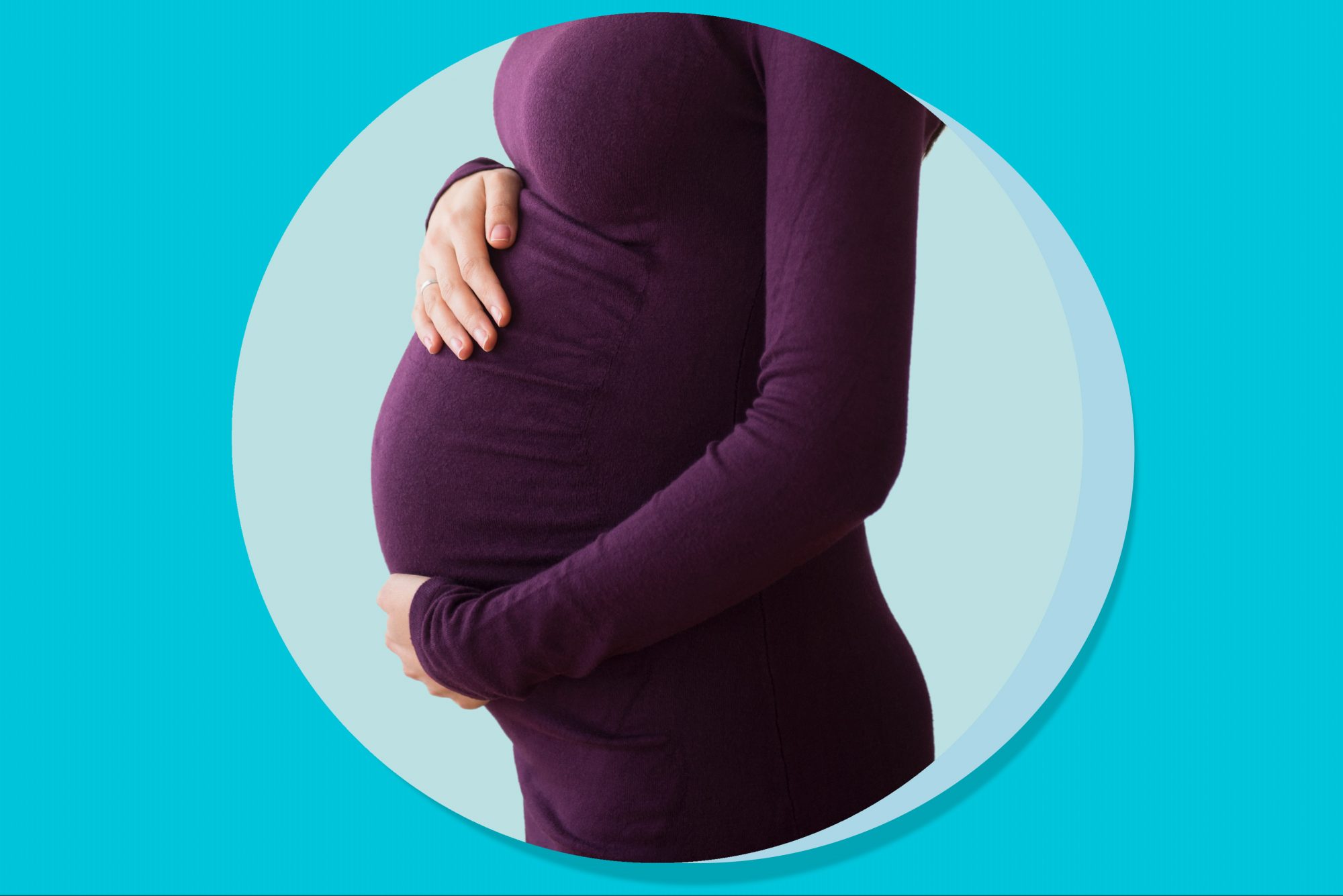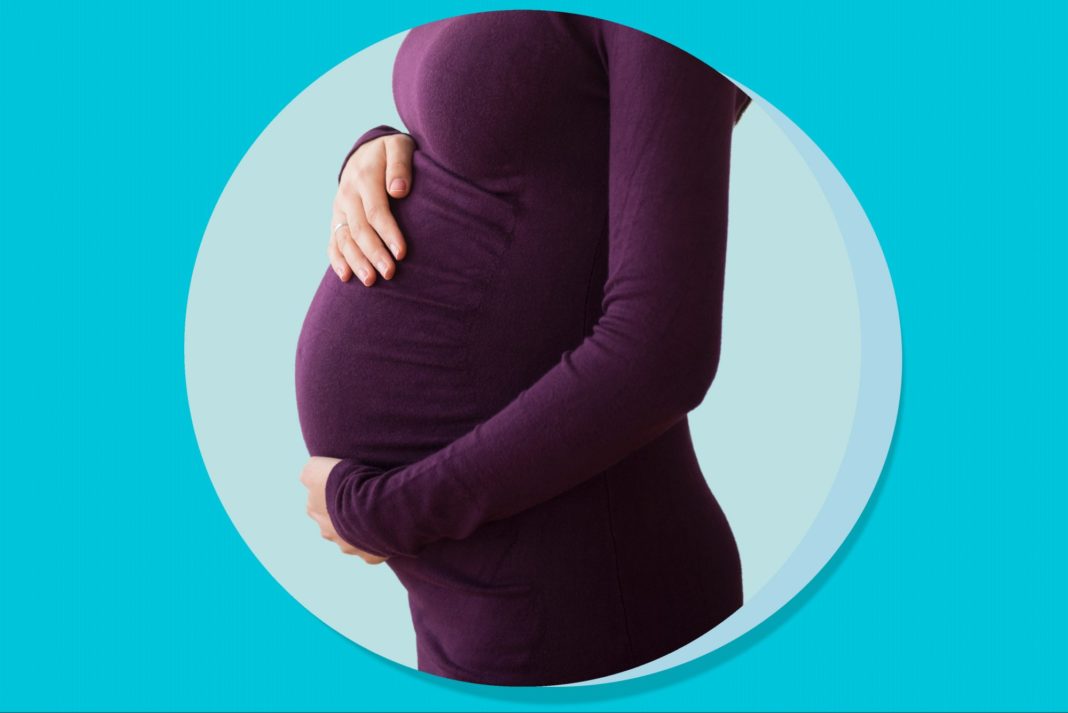
Let me make one thing clear right off the bat: I'm grateful to be pregnant. Growing another human being is an absolute miracle, and every day I am astounded by what my body is capable of. I can't wait to meet my little one in just a few short weeks, and I often look down at my growing belly with tears in my eyes, thinking of what's to come. But at the same time, I cannot say that I am fully enjoying the experience of being pregnant.
I was ready to accept some morning sickness at the beginning and discomfort at the end, but there are many elements of being pregnant that have been surprising and unpleasant. I dealt with hormonal changes in my first trimester that made me unable to recognize my own personality and fatigue throughout my entire pregnancy that has made getting through the workday impossible without a nap. And I say this knowing that, relative to most of my friends, I've had an easy pregnancy.
This is not meant to be insensitive to those going through fertility challenges. But as I've progressed through my pregnancy, so many of my conversations with friends have been around the fact that many people—despite wanting to have children and feeling lucky to be able to carry a child—actually hate the experience of being pregnant. While this seems to be a fairly common sentiment, what has also come up is feeling a great deal of guilt, judgment, and shame around not loving being pregnant, and a fear of talking about it openly. It's time to normalize the conversation around disliking pregnancy and allow for a nuanced conversation around both the challenges and joy that come with creating new life.
The Unexpected Physical Changes of Pregnancy
For many people I spoke to, the sheer discomfort of pregnancy was enough to keep them to a one-and-done scenario. "Between feeling extremely sick every day up until 20 weeks and the sciatica and back pain that took over for the rest of my pregnancy, I was basically homebound for the entirety of my pregnancy," says Celia S., a 40-year-old mother of a 2-year-old.
As for me, I was shocked when the third trimester came around and I felt like I had a bowling ball shoved on top of my cervix and woke up feeling hungover every morning despite subsisting off ice water and herbal tea. All of a sudden, my vision of working out and taking long walks up until my due date went out the window, and I found myself on the couch soliciting Netflix recommendations from friends.
Even though we know that creating life is not going to be a no-pain experience, the expected physical changes of pregnancy are somehow still surprising when they're happening in your own body. This can be especially true if you experience any of the myriad of unexpected things that can happen. For example, I had no idea that developing corns on your feet is a relatively common symptom of pregnancy until a friend shamefully whispered into the phone that she was currently experiencing this unpleasant side effect. And don't even get me started on bleeding gums and daily bloody noses. Worth the tradeoff? Yes. Unpleasant? Also, yes.
False Pregnancy Expectations
As with so much of life, sometimes it's the expectation of what pregnancy will be like versus the reality that makes the experience more shocking. When asked what she thought pregnancy would be like, Naomi L., 42, says, "Remember that cover that Demi Moore did for Vanity Fair? That basically sums it up. Sexy, mother earth goddess eating wheat grass and oming to the gong beat of the eternal feminine presence. Where should I buy pregnancy lingerie?"
Yet, despite the societal portrayal of the "glowing" maternal figure, for many, pregnancy brings on acne, melasma, body hair, odors, and GI issues. So how did Naomi's reality compare with her Demi Moore-like expectations? "I was very hot, almost all the time. I was out of breath most of the time," she says. "Also, I had to eat a Tums just to make it up the stairs."
After wanting to be pregnant for so long, though, Naomi didn't feel like she could openly share feeling ashamed about her body and her insecurities around some of the physical changes of pregnancy. The result is a person forced to just put on a happy face when inevitably asked, "How are you feeling?" and perpetuate an unfair cycle.
For Megan Roup, founder of the dance cardio fitness platform The Sculpt Society, it was that same mismatch of what she thought pregnancy would be like compared to her reality that triggered her feelings of discontent, but more so on the mental/emotional side. "Going into pregnancy, I thought I was going to be a lot more relaxed about it because I'd worked really hard in my early twenties to develop a great relationship with my body," she says. "It felt almost like when I got pregnant, some of my old feelings about my body insecurities started coming back up, which was really frustrating for me since I had done so much work on love and self-care and coming to peace with my body."
Roup had to keep reminding herself that the changes she was going through were good and necessary to support a baby, but she wishes that it wasn't so taboo to talk about how, for some, weight gain and body growth can be triggering and hard, even when the pregnancy is desired. "I just didn't feel at home in my body," she says. "For however long you've been on this earth, you know what your body feels like and then for these 10 months, your body is no longer yours in a way. And I definitely struggled with just not feeling like myself."
I personally also struggled with not being able to recognize some of my own thought patterns and not feeling in control of my emotions. At the beginning of my pregnancy, the combination of surging hormones and huge life changes led me to wonder who I was and what the future held for me, my relationship, and my identity as a I knew it. Luckily, with the help of a talented therapist and some hormonal leveling I was able to find myself again in my second trimester and regain a sense of security in my sense of self, but it was a scary few months while I wondered if I would ever feel like "me" again. This was not something I expected to feel, and something that felt beyond the realm of what was acceptable to talk about in my social circles.
Normalizing the Conversation
The point here is not to say that anyone should like pregnancy or dislike it—it's that we are all entitled to have our own experience and shouldn't be made to feel like there is a "right" or "wrong" way to feel about such a profound life event.
According to University of Houston researcher Brené Brown, Ph.D., renowned for her work on vulnerability, shame, and empathy, feeling shame is the "intensely painful feeling or experience of believing that we are flawed and therefore unworthy of love and belonging." And if there's anything we need more than ever when going through pregnancy, it's to feel a sense of belonging in our communities and to be able to share openly how we are feeling, without fear of judgment or backlash. For Roup, one of the things that was most helpful throughout her pregnancy was the supportive Sculpt Society community and feeling like she was able to be transparent about her mixed emotions and lean on others for commiseration, camaraderie, and support.
So, bottom line, let's start to normalize having open and honest conversations about both the beautiful parts of carrying a child as well as the not-so-beautiful aspects (heartburn remedies, anyone?) and bring some more nuance into the social dialogue. At the end of the day, we will all feel less isolated in our fertility journeys, wherever they may lead us.

































